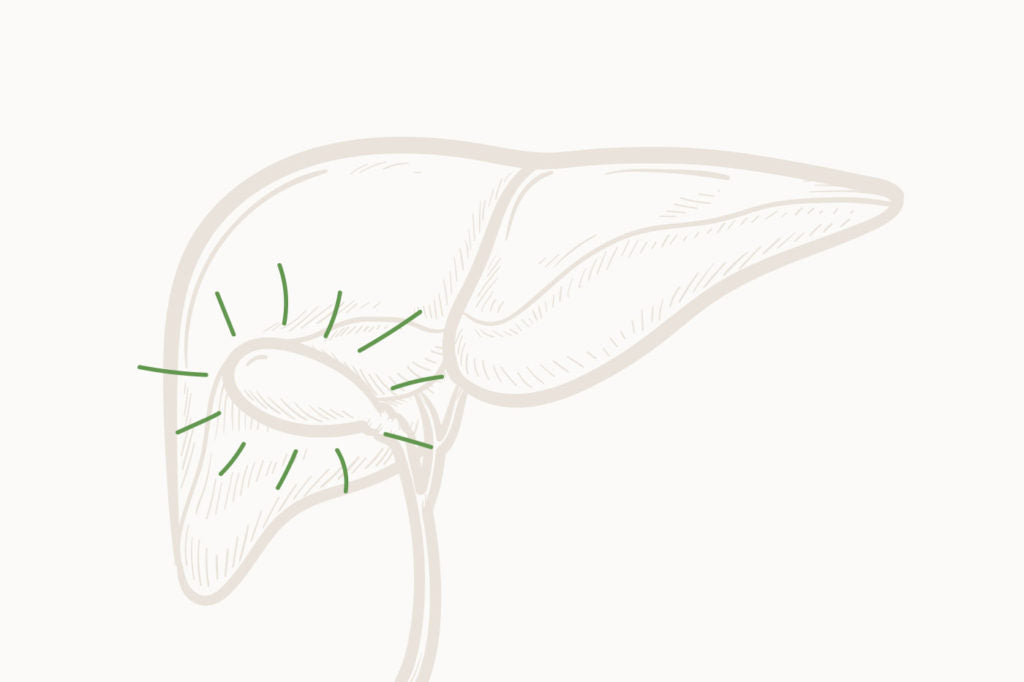
Are you at risk of fatty liver disease?
Until recently, fatty liver disease was something only heavy alcohol drinkers were at risk of developing. Yet, the prevalence of this harmful health condition is rapidly escalating. It’s affecting even those who consume very little alcohol or abstain entirely—alarmingly, even teenagers.
What’s driving this health crisis?
The culprit is our everyday diet, which often includes excessive amounts of refined sugars, preservatives and a plethora of artificial compounds from ‘food’ choices that all add to the liver’s load. Seemingly innocuous in isolation, they cumulatively contribute to an overburdened liver. Add alcohol to that mix (or not) and it really begins to add up. The average liver is struggling to keep up with the demands we are placing on them.
There are several dietary habits that put us at risk of developing fatty liver disease. They include:
- Consistently consuming ultra-processed foods and drinks: The average supermarket has aisles and aisles of packaged food and drinks designed to make our lives more convenient. The problem is that these products are often laden with low-quality fats, refined sugars, and a host of artificial ingredients – even those marketed as ‘healthy’ options. These everyday offenders can significantly spur the onset of fatty liver disease.
- Insufficient vegetable intake: Fewer than 10% of adults are consuming the recommended minimum intake of five serves of vegetables daily. Five serves looks like 2 ½ cups of cooked vegetables or 5 cups of salad vegetables. When we don’t consume sufficient vegetables, we are depriving ourselves of nutrients that aid in warding off fatty liver disease.
- Regular alcohol consumption: Even a glass or two most days a week in combination with too many ultra-processed foods and not enough vegetables can trigger the liver to accumulate and store fat.
Fatty liver disease is often developing silently in the background and most people don’t realise it’s happening. If blood tests are taken, they will typically show up changes in certain parameters like cholesterol and triglycerides. Insulin resistance is also really common, although most people won’t know this is present either. Someone with a fatty liver may have trouble losing body fat and might also have what’s referred to as a ‘liver roll’ (this a layer of body fat that forms below the bra line in women, or below the pectoral muscles in men). Some (but not all) people with fatty liver might experience pain or discomfort in the upper right abdomen––the liver is in the upper right part of the abdomen. If you’re experiencing a consistent, dull pain or discomfort in this area, it could be a sign that your liver is enlarged or inflamed—a possible symptom of fatty liver disease.
The good news is that fatty liver disease can be both prevented and reversed. Here are some practical steps to put into action:
1. Ensure water is your main drink
Water aids in essential bodily functions and is critical for our survival. It assists our digestion, helps in the removal of waste and keeps the blood at its optimum viscosity. The vast majority of processed beverages—soft drink in particular—contribute to fat production in the liver. Start your day with a big glass of water to rehydrate yourself after 8 hours of not consuming any. It’s a great way to set the standard for the rest of your day while promoting circulation from the outset. Keep other beverages to a minimum.
2. Adopt a nutrient-rich diet
Prioritising whole, real foods over processed foods can dramatically improve liver health and help reduce fat accumulation. Whole real foods are essentially foods that are close to their natural form and haven’t undergone significant processing before they reach our plates. They include vegetables, fruit, meat, seafood, nuts, seeds, eggs and legumes/pulses. Aim to have around 50% of your plate made up of vegetables with protein, complex carbohydrates and nourishing fats making up the other 50%.
3. Incorporate beneficial herbs and plants
Some specific plants and herbs are renowned for their liver-supporting properties and can play a role in maintaining liver health. The liver loves bitter foods so think leafy greens and in particular Brassicas (broccoli, cauliflower, Brussels sprouts, kale, cabbage, kohlrabi) which contain substances unique to this plant family that are essential for the detoxification processes in the liver, particularly those needed to eliminate estrogen and pesticides. Other plants and herbs that support the liver include St Mary’s Thistle, gentian, globe artichoke and turmeric.
An efficient and high functioning liver is essential for an overall healthy life and it’s never too late to make changes that support the health of this important organ. Try making small incremental changes that you can build on to ensure what you do feels manageable. This way you’re more likely to sustain the changes for the long term.





